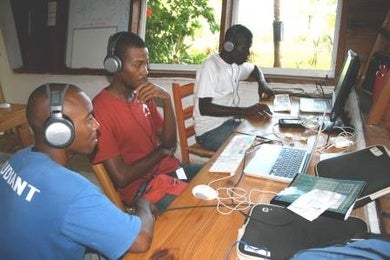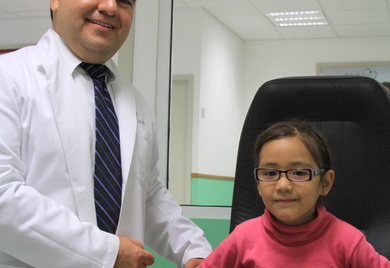Blogs Navigation
Sustainable BusinessRecent posts

Addressing gender-based violence from the private sector: the experience of Laboratorios Bagó
Francisco Méndez, CEO of the pharmaceutical company, shares his company's efforts and achievements in fostering an inclusive and safe work environment.

How Responsible Investments Can Empower Young Women and Girls in Miches While Boosting Tourism
In partnership with Fundación Tropicalia, IDB Invest fosters a more inclusive and sustainable growth path in the Dominican Republic by focusing on their untapped potential.

A Few Very Good Reasons to Protect the Integrity of Gender Bonds
Latin America and the Caribbean has become a leading region in gender bond issuance aimed at bolstering women’s empowerment. These instruments offer a promising capital market solution to mobilize funds towards projects that help accelerate parity.

Three Assumptions You Should Avoid When Working with the BoP
“I like working in something I love, where I receive compliments and I manage my own time,” said Carlos, a 43-year old man, father of two, who earns less than U$360 per month. He was one of the 10 men and women we gathered in Villa El Salvador in Lima, Peru, for a focus group on the consumption preferences of low-income people. His response to the question about the advantages of a formal, stable job made me realize people and organizations (me included) working with those at the base of the pyramid (BoP) tend to make subtle assumptions about this segment of the population – assumptions that impact the effectiveness of our projects to benefit this population.

What can Latin American countries learn from Korea in energy efficiency?
*By Narae Lee If you dig a hole through the center of the Earth, starting from Montevideo in Uruguay, you would get to Seoul, the capital of South Korea. Korea and Uruguay are the antipodes, meaning that they are diametrically opposite to each other. Korea is indeed one of the farthest countries from Latin America, seemingly not having many things in common with the region either. However, the Asian tiger has recently increased its visibility on the other end of the planet through Korean companies and celebrities in mass culture and sports, but most importantly by sharing its development experience.

Wish there were more hours in the day? Distance learning can maximize time and earning potential
Doesn’t it always seem like there aren’t enough hours in the day? How can we possibly fit it all in? The same is true for young people in Latin America and the Caribbean - especially those in lower income or vulnerable communities. For the high school graduates, many aren’t able to go directly to university for financial, family or other reasons. For example, Estacio, a large private university in Brazil, estimates that approximately 40% of high school graduates in Brazil go directly to university. Many others start a job, or a family or both.

Can innovations in healthcare technology leapfrog to better solutions?
In our experience at the IDB, healthcare systems in many countries in Latin America and the Caribbean (LAC) suffer from severe resource constraints. Competing health priorities, budget restrictions, staff shortages and general technological deficiencies leave large segments of the population without basic treatment.

The Caribbean Private Sector: How to expand lending
“All cassava have the same skin, but all don’t taste the same way,” is a Caribbean proverb which serves as a reminder that while people may appear alike on the outside, each is quite unique on the inside. The saying, which first originated in Guyana, speaks about the individuality of people, yet it also resonates with me as a development professional when thinking about the diversity of the Caribbean economies. From what I have seen, each country in this region offers a distinct mix of cultural richness, entrepreneurialism, sector expertise, biodiversity, natural resources and much more.

Why invest in health?
On September 18, 2013, I co-led along with Geetha Tharmaratnam (The Abraaj Group) a webinar for the Global Impact Investing Network (GIIN) Investors’ Council on opportunities in the health sector to address critical needs in emerging markets. Most countries in Latin America and the Caribbean have universal public healthcare systems, however, the infrastructure, especially outside of capital cities and for higher complexity needs, is typically insufficient. There are long wait times for services, limited geographic access to specialists and often long payment cycles for private providers serving lower income patients. These combined factors result in a lack of access to quality care in a timely fashion.


